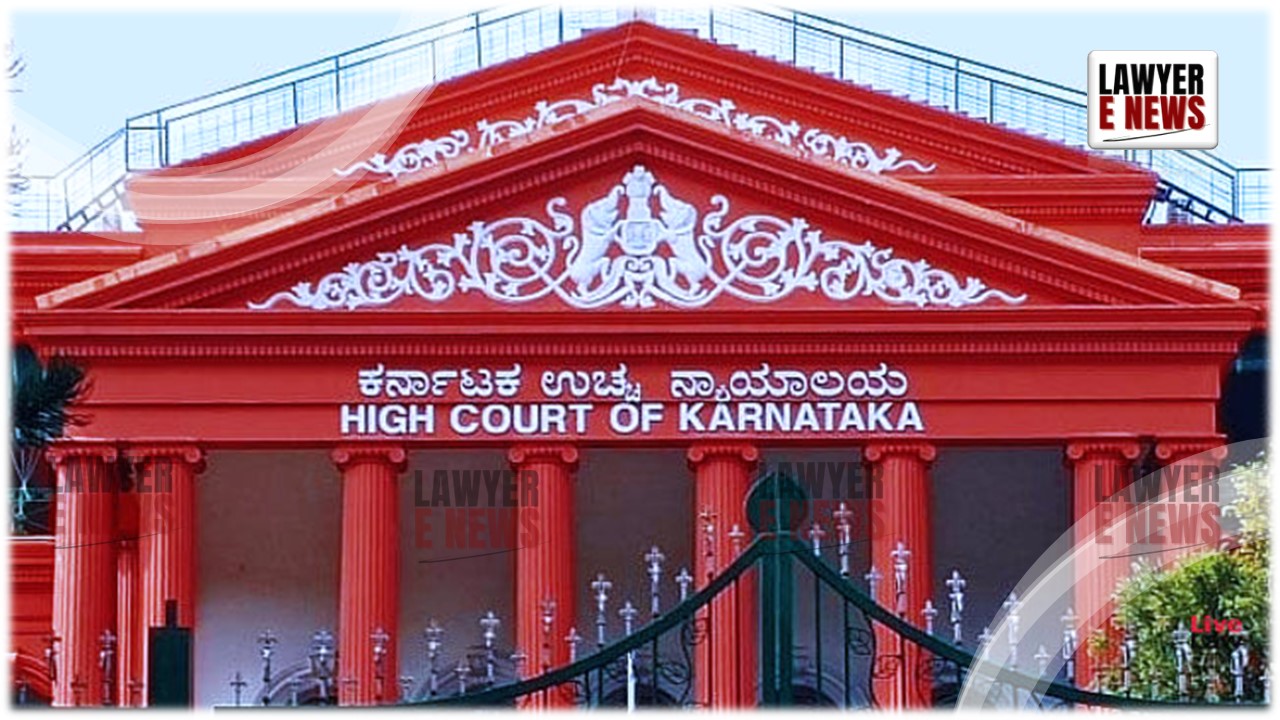-
by Admin
15 February 2026 2:36 AM



The Karnataka High Court has allowed a Civil Revision Petition (CRP) filed by Smt. J. Vasanth Kumari, effectively rejecting the plaint filed by her mother, Smt. Saraswathamma. The Court, presided over by Justice N. S. Sanjay Gowda, emphasized the importance of adhering to the limitation period prescribed under the law and highlighted the absence of any claims of fraud or coercion in the execution of contested property deeds.
The dispute arose when Saraswathamma instituted a suit in 2019 against her children and other defendants, seeking the cancellation of various property documents, including a gift deed from 2004 and a partition deed from 2002. The primary contention was the validity and binding nature of these documents, which Saraswathamma claimed were executed without her knowledge and under fraudulent circumstances.
The Court noted that the suit was filed 15 years after the execution of the gift deed, which Saraswathamma admitted to having executed willingly and out of love for her daughter. Justice Gowda stated, "The suit for declaration that the gift deed executed by her on 01.07.2004 in favour of her daughter was hopelessly barred by limitation, since the suit was filed 15 years after the execution of the gift deed which was not even alleged to have been obtained by fraud".
The Court emphasized the lack of any allegations of fraud or coercion in the plaint. Justice Gowda remarked, "She did not plead an element of fraud, coercion, or undue influence against her daughter in the matter of the execution of the gift deed". This was crucial in determining the merit of the suit and its susceptibility to being barred by the statute of limitations.
The High Court found that the Trial Court had erred in rejecting the application filed under Order VII Rule 11 of the Civil Procedure Code (CPC). The Trial Court's decision was based on the assumption that the plaint's averments could only be adjudicated after a full trial and that there was a recurring cause of action. However, the High Court clarified that no such recurring cause of action existed and that the primary cause of action was barred by limitation.
The judgment extensively discussed the principles of evaluating limitation periods in civil suits. It reiterated that for a suit to be maintainable, it must be filed within the period prescribed by the Limitation Act unless there is a valid reason for the delay, such as fraud. In this case, the Court found no such valid reason, as Saraswathamma had not alleged any wrongdoing at the time of the execution of the contested deeds.
Justice Gowda stated, "Since the suit has been filed 15 years after the execution of this gift deed, per the plaint averments itself, it is clear that the prayer in the suit was barred by the law of limitation". This underscored the importance of timely legal action in civil disputes.
The Karnataka High Court's decision to allow the Civil Revision Petition and reject the plaint filed by Saraswathamma reinforces the judiciary's adherence to the statutes of limitation and the necessity for timely litigation. This judgment is expected to have significant implications for similar cases, emphasizing the importance of filing suits within the prescribed time frames and the requirement of alleging fraud or coercion when seeking to overturn property transactions.
Date of Decision: May 9, 2024
